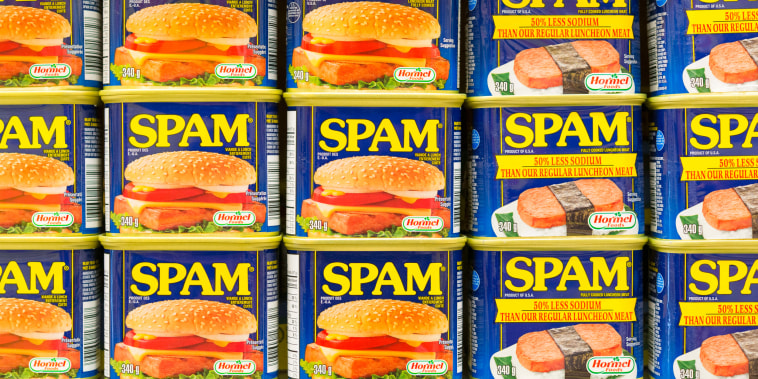For decades, Spam has been a staple in Hawaiian cooking, a phenomenon dating back to its introduction during World War II.
Now, Spam and parent company Hormel Foods are stepping up to aid victims of the Maui wildfire disaster.
The companies announced Thursday they would be donating 264,000 cans of Spam, valued at more than $1 million, to a relief organization.
“The people of Hawaii have a special place in both the history and heart of the Spam brand,’ the companies said in a statement. ‘Our donation efforts are just one way we are showing the community our love and support back.”
The delivery will be carried out by Convoy of Hope, a nonprofit organization whose mission includes aiding those affected by natural disasters.
“We know how popular Spam products are, especially in Hawaii,’ said Stacy Lamb, vice president of disaster services at Convoy of Hope. ‘This donation allows Convoy of Hope to deliver comfort to people whose lives have been turned upside down,’ Lamb added.
The fact that Spam doesn’t need refrigeration makes it a perfect item for Convoy to deliver to survivors, Lamb said.
The creation of Spam predates World War II, but the product surged in popularity during the war, thanks to its long shelf life. Spam grew especially valued in Hawaii as a cheap alternative to pork, according to food historians.
Today, the Hawaiian community consumes more than 7 million cans of Spam products a year — more than any other state, Hormel says.







